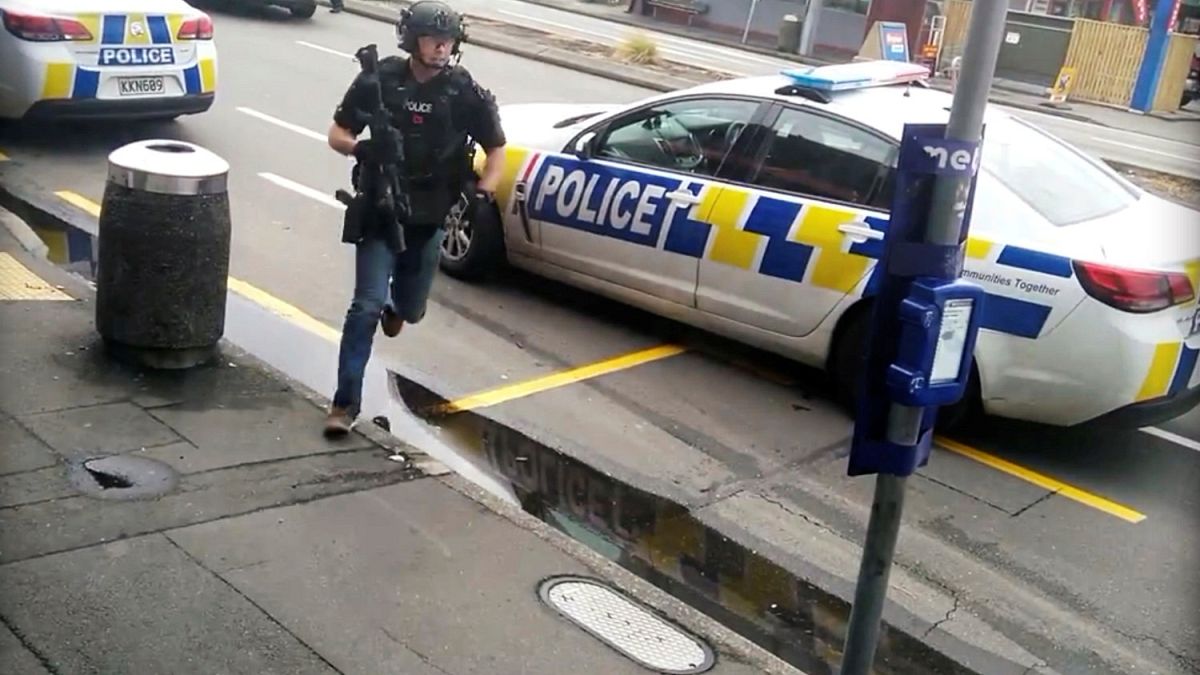An applicant for a firearm licence must pass a background check which considers criminal, mental health, medical, addiction and domestic violence records. In 2017 43,509 who people applied for firearms licences, 43,321 were granted them.
New Zealand's Prime Minister Jacinda Ardern announced early on Saturday the country's gun laws will be toughened following the killing of 49 people in Christchurch mosques.
“I can tell you one thing right now: our gun laws will change,” said Ardern.
“There have been attempts to change our laws in 2005, 2012 and after an inquiry in 2017. Now is the time for change.”
The Prime Minister said at a press conference that she would consider banning semi-automatic firearms altogether, after it was alleged the gunman behind Friday's shootings got hold of guns legally.
The country’s gun legislation has not been a major political issue of late and has remained largely unchanged since 1992 when controls were tightened after the 1990 Aramoana massacre, in which a man killed 13 people with a semi-automatic rifle.
Now following the latest attack, the conversation could come front and centre again.
Gun culture
Firearms continue to be an intricate part of civilian life in New Zealand as an estimated 1.2m firearms are owned, according to the 2017 Small Arms Survey for a country with a population of under 5 million.
This ratio makes New Zealand’s per capita rate of gun ownership much higher than their neighbour Australia who own a total of 3 million guns in a country with nearly 20 million more people.
These numbers are still drastically below the US ownership rate where there is more than one gun per person in civilian ownership.
Although owned licensed guns continue to rise every year with 238,7000 registered owners in 2017 according to gunpolicy.org, gun-inflicted deaths have remained stable with an annual rate of about one death per 100,000 people – a number still higher than Italy, Portugal, Spain and Germany.
Firearm licences
All gun-owners must obtain a license but most individual weapons don't have to be registered, making New Zealand one of the few countries in the world to allow this.
The minimum legal age to own firearm is 16 or 18 for military-style semi-automatic weapons (MSSA). Anyone over those ages who is considered by New Zealand Police to be "fit and proper" can, in turn, own a gun without registering it specifically.
An applicant for a firearm licence still must pass a background check which considers criminal, mental health, medical, addiction and domestic violence records.
Once approved, the license is issued for 10 years, but can be revoked at any time if police believe the person is a threat to be in possession of a firearm. Visitors to New Zealand can apply from overseas for a 1-year visitor's licence based on their existing licence in their country of residence.
It remains more likely than not that an applicant will be approved for the license. In 2017 43,509 people applied for firearms licences, and 43,321 were granted.
Gun carrying laws
New Zealand law requires an individual to have some lawful and sufficient purpose to discharge or carry any firearm. However, exactly what constitutes a lawful purpose is not defined in legislation and must be taken on a case-by-case basis.
While hunting and pest control are normally accepted, personal protection and self-defence are not. It is also illegal to leave a gun unattended in a vehicle and firearms carried in a vehicle must be unloaded and have empty magazines.
Legislative loophole?
Police have been long concerned about a loophole in military-style semi-automatic rifles (MSSAs) ownership in New Zealand.
Military-style semi-automatic is how New Zealanders describe semi-automatic assault weapons.
Due to how MSSA firearms are defined by law, guns with slightly different features but virtually the same function can fall outside of the stricter regulations.
To buy and use such a rifle requires an E-Category endorsement of a standard firearm licence, prerequisites being a reference from a shooting club or another bonafide reason requiring one such as "pest control or a gun collection".
But there's a loophole in the law, according to police, that has an unknown number of these guns in the hands of regular licence holders.
An A-Category configuration — meaning the firearm does not fit the MSSA definition — only has a strip of moulded-plastic connecting the handle-grip to the shoulder-butt of the gun to make it different to the E-Category rifle.
Rifles can then be transformed into an MSSA simply by adding a larger-capacity magazine.
Unregistered held guns cannot accurately be counted, but as of 2017, there are estimated to be 1,500,000 unlawful and illicit firearms in New Zealand according to gunpolicy.org.


